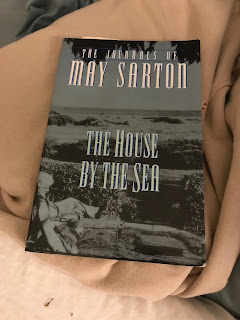 |
| photo by Anna Reavis |
"We are not made to love immortal things. Only what is irreplaceable, unique, and mortal can touch our deepest human sensitivities and be a source of hope and consolation." Henri Nouwen
Reading authors like Henri Nouwen and Frederick Buechner
reassure me because they remind me that I am not alone in my questioning, not
alone in my doubt. It has always been
hard for me to realize how many thoughtful people of deep faith struggle
with the same non-belief I often feel.
We seem to live in a climate of such thoughtless surety. I recently re-read Turning
My Mourning Into Dancing by Nouwen and finished A Room Called Remember by
Buechner. This post is going to be some of my thoughts from the Nouwen book.
One of the most important issues most of us struggle with is
the search for meaning in our lives. At
our low moments I expect a lot of us slide into some form of existential angst
where we feel overwhelmed by the absurdity of our existence. Our society has become so insular, so alienating;
we are so closed in on ourselves. The mindset
that leads to such insularity is breaking us.
What if our goal, both personally and as a society, became as Nouwen
hopes “[to] live in a world without zealously defended borders”? Nouwen, along with many others, asserts
that love is the meaning of life, that loving each other should be our purpose,
that we should strive to be a vessel to carry love to others, to let love flow
through us without attempting to hoard and clutch it for ourselves. To make as our goal learning to love one
another without suspicion, insecurity, or manipulation. Love often means accepting, without
impatience or judgment, what we have no ability to understand. We must allow others to be just that: other.
How difficult it is, though, to love others purely and truly
when we aren’t able to love ourselves, when our own needs clamor for attention
at every passing moment. We need
justification, praise, validation, attention, and on and on. Seems like it should be easy to love and forgive yourself, but I think it is one of the hardest processes we struggle with every day. We try to earn love, forgiveness,
salvation…from ourselves and from others.
We can’t accept that these are gifts born not of striving, born simply of grace.
We to try craft our own image from the praise and validation we get from
others. We use people to meet our own
needs. How hard it seems to be to see
everyone as worthy of love, patience, and acceptance. The homed and the homeless, the criminal and
the judge, the addict and the priest, are people, flawed and broken,
just like I am. We seem to have no real
ability to understand another’s pain and often no real ability to understand or
accept our own. Sometimes helping others
becomes a method for manipulation and a way to avoid dealing with our own
problems. We make people into projects,
objects for improvement, ignoring or bulldozing their personhood and their
pain. Loneliness and neediness create
demand and disappointment and break, rather than heal. What if we learned to love and accept without
attempting to change or influence? To
listen without predicting or assuming.
What if we become conduits for love to pass through, rather than
receptacles for its landing?
Our openness to each moment as it happens is probably the most important indicator of our own happiness. I would like to learn to ignore the compartmentalization and dictates of time and society and learn truly just to be in every moment, even if I am doing no more than sitting on the porch reflecting. I need to learn to be alone, open, honest, vulnerable and to
listen for the voice of God, even if it comes back to me as the voice of my one
true self. It will be the voice that
tells me to accept, love, and forgive myself without impediment, and to extend
to others the same gift.



4 comments:
This comes at just the right time for me, especially at it relates to my work. I think that part about extending to others the same gift to accept, love, and forgive ourselves especially hits home.
I know exactly what you mean, Bryan. I struggle often to do just that at work too. I'm glad it spoke to you.
'What if we learned to love and accept without attempting to change or influence?' Ah so true, if I'd paid more attention to that thought my marriage may have lasted longer. Good post.
I think true acceptance may be the most difficult aspect of loving others, and my experience has been that it's a struggle for us all.
Post a Comment